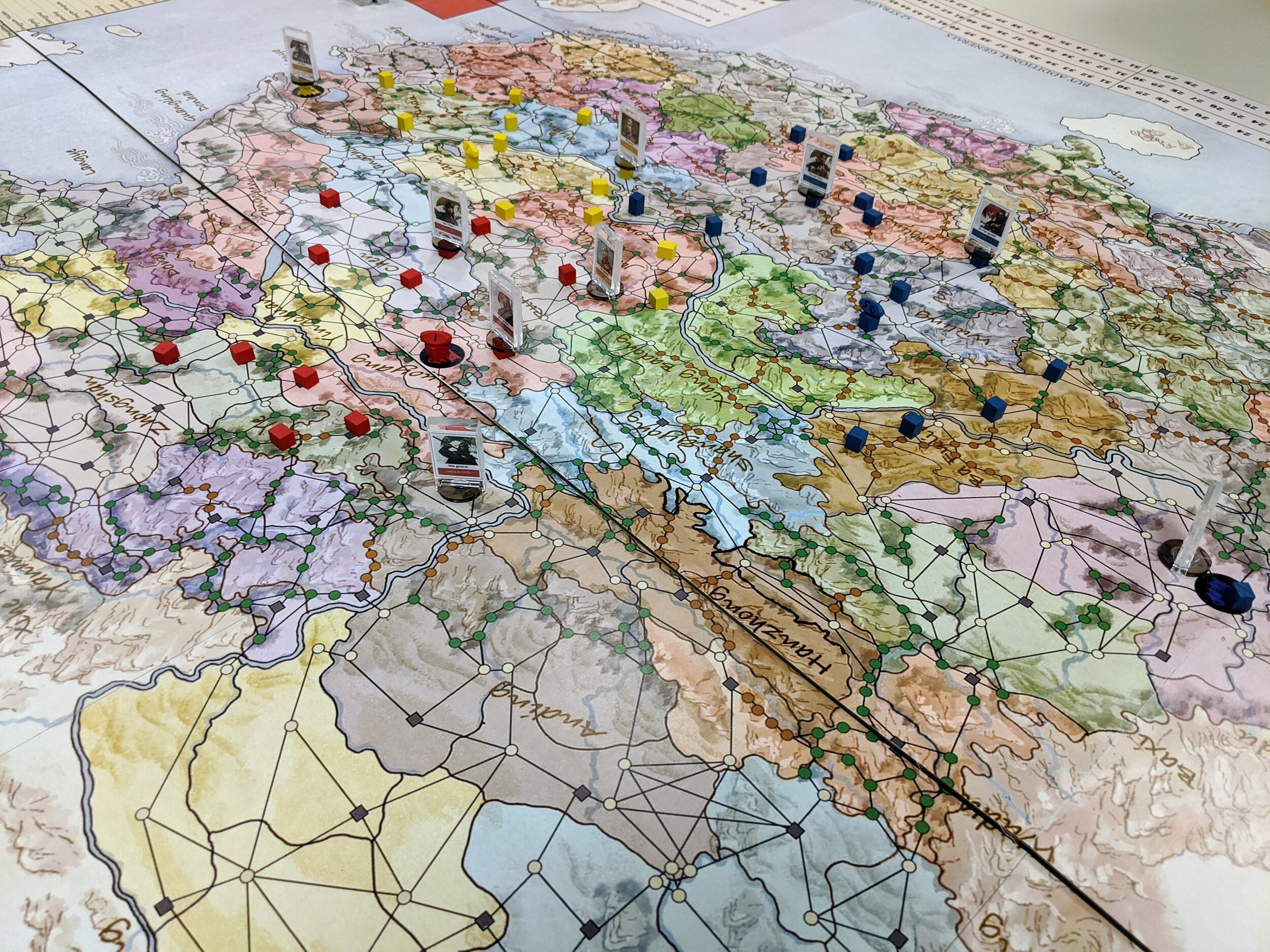
GUWS is excited to offer virtual programming for the spring semester! Register by clicking on an event or visit us on Eventbrite.
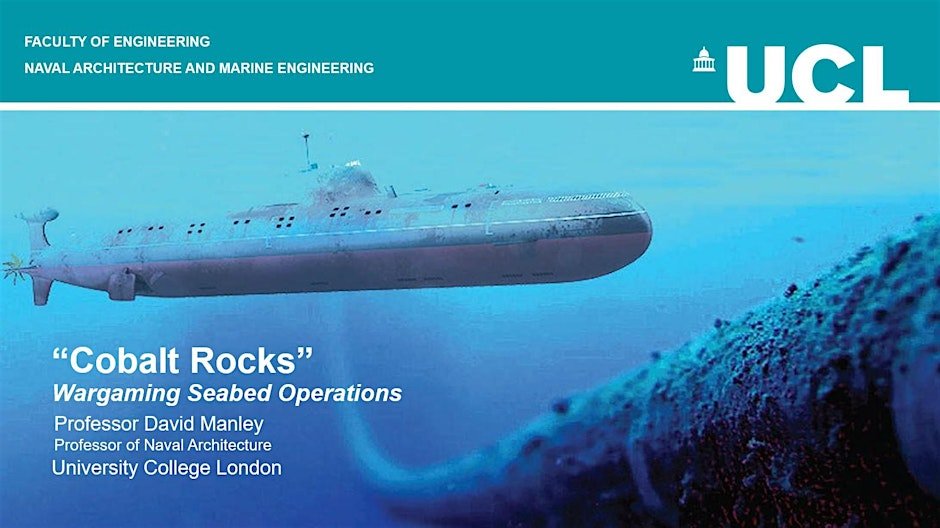
Cobalt Rocks: Wargaming Seabed Operations
The protection of Critical Undersea Infrastructure (CUI) is a current "hot topic" given recent events on the Baltic and other European waters. The talk covers the development of UCL's "Cobalt Rocks" CUI wargame, tracing its genesis as a tool to support student ship design at UCL and its later development to support real world capability analysis. Discussion topics include the style of play for a diverse scenario/player base, recent developments to support users beyond the university and some of the conclusions that have been drawn from games so far.
David Manley is the Professor of Naval Architecture at University College London where he has worked to develop a number of games within UCL's suite of maritime wargames. He is also the UK MOD's SME on maritime survivability, having worked in the area for 25 years. He is a hobby naval wargamer of nearly 50 years experience and has published many sets of rules, often on obscure campaigns such as the 1976 Cod War and WW1 gunboat operations on Lake Tanganyika. David has the delight of managing five cats, four horses (not his) and three alpacas (definitely his) which take up far too much time that should be spent wargaming.
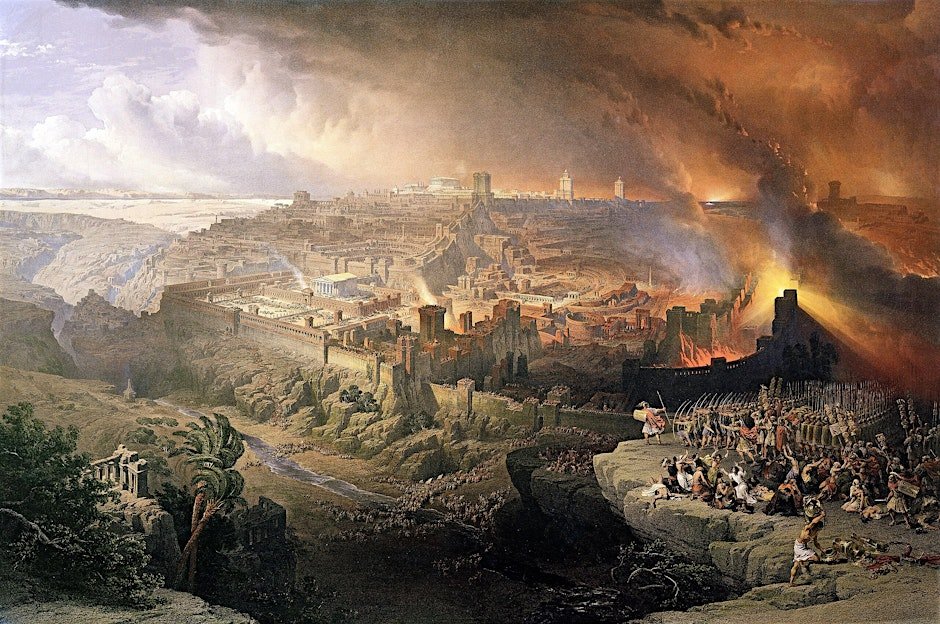
Modeling Urban Warfare: how can we model the complexity of urban space?
Wargaming has long practiced how we model conflict between armed forces. In recent years, reflecting the changing nature of conflict, wargaming has included new domains of warfare from electronic to littoral to irregular and urban. New domains offer new challenges as the same problems that hound military theorists now hound designers. Whilst working on ‘We Are Coming, Nineveh’, my co-designer and I tried to integrate the crucially messy aspects of urban conflict into our design but the question of how we model urban space, place, and communities into wargaming design remains as pressing and unclear as ever. This webinar will explore our design journey and the urban wargaming space before charting some ways forward to push the discipline into embracing the complexity of urban place and conflict.
Urban warfare has long troubled military theorists and game designers alike. Harrison Brewer takes a look at the field of urban wargaming, reflects on his own design journey, and asks where we can push the boundaries to build better models of urban operations.
Harrison Brewer is an urban planner and designer living and working in London, UK. He is also one of the designers of ‘We Are Coming, Nineveh’, a tactical/operational game modelling the Iraqi government’s campaign to retake the city of Mosul in 2016-2017. ‘We are Coming, Nineveh’ won a Charles S. Roberts Award for Best Tactical Game in 2023.
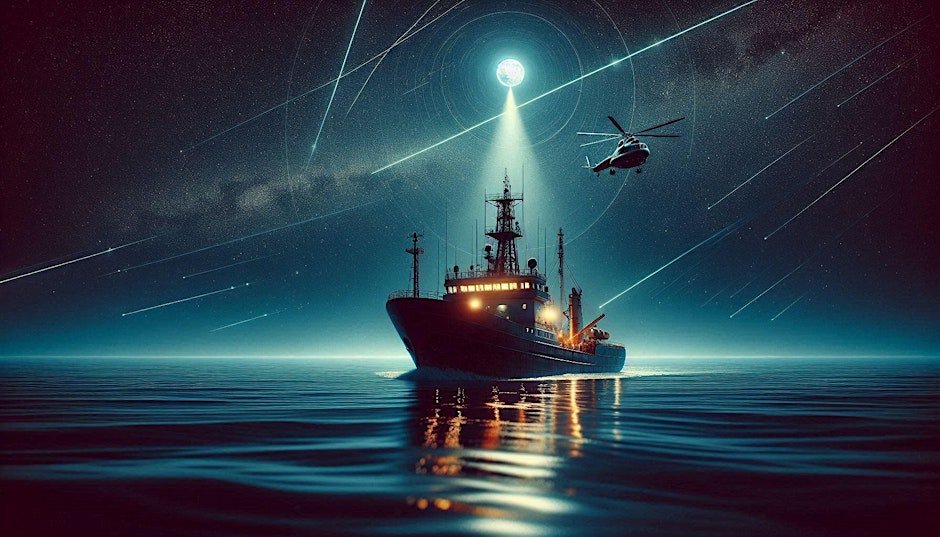
Spyships, Satellites, and SAMs
In this presentation, David Redpath will discuss three unclassified conducted in Canada in 2024 for: Navy, Space and Airforce, declassified. David will cover tasking, design considerations timings and outcomes in general.
David Redpath. 11 years British Army – Commissioned Officer – Commanded units in Germany, Northern Ireland, Middle East and UK. Recce specialism.
Final posting was as Chief Instructor of Reconnaissance and Machine Gun Training at the School of Infantry.12 years as a VP and Director in the multinational Defence Industry – ROV’s, protective survival and personal equipment, including Heads Up Displays, helmet systems, portable power and AR systems for light infantry and SF
Currently Senior Wargame Designer at Canadian Joint Operations Command – designing, developing and delivering Wargames for the CAF and other NATO countries.
Married with 3 grown up children, 3 grand children and a dog.
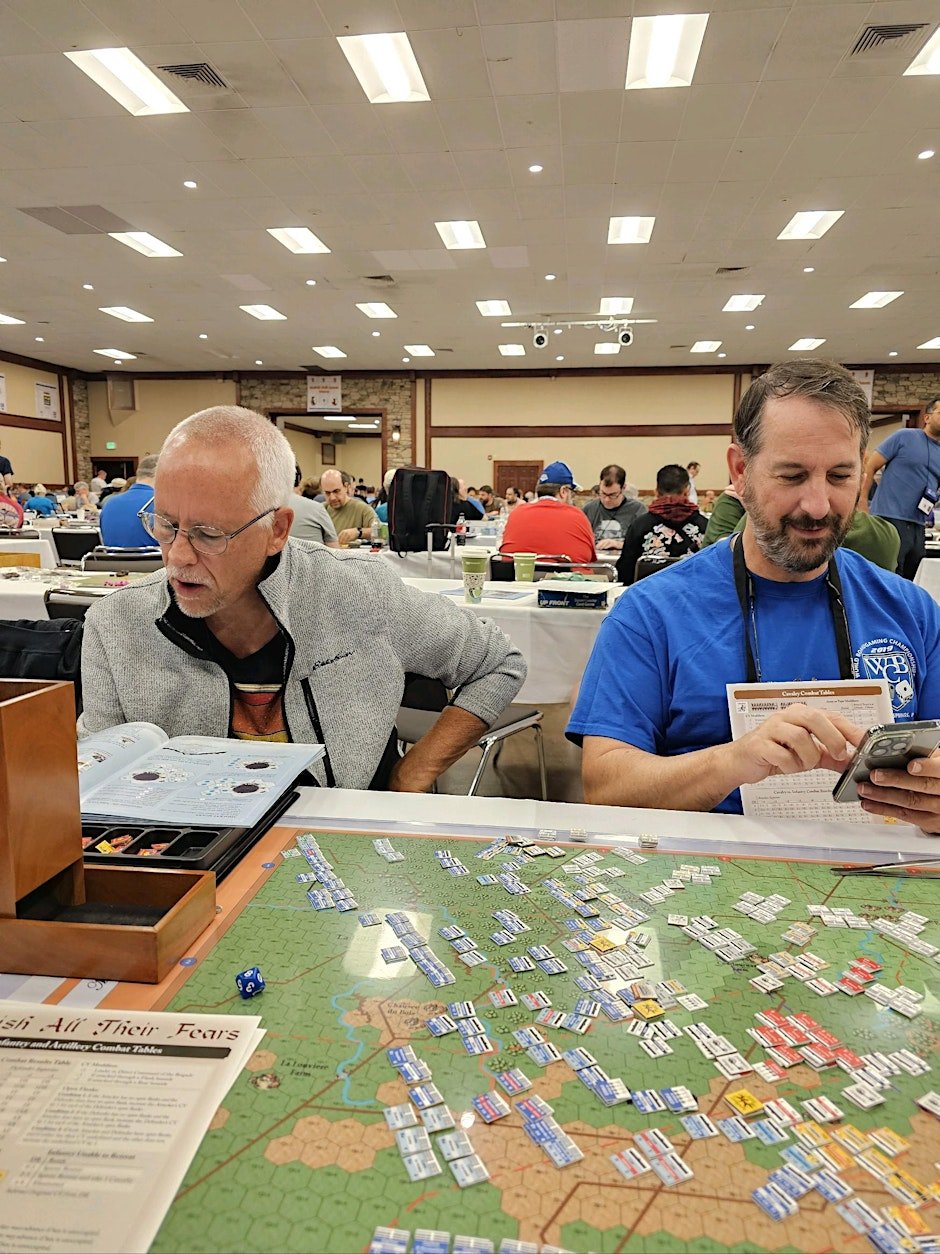
Tactical Wargame Design
Tactical wargame design presents significant challenges to any prospective designer. The term tactical covers the physical engagement of forces and can range from individual combat to divisions. The time scale can be from seconds to days. The designer will focus on significant factors – are those human factors such as morale or limited awareness, or technical factors like speed, range, or gun caliber. The speaker has designed several tactical game systems from different eras and scales and can share insights from the commercial game industry and the wide variety of titles and approaches. A broader understanding of the options can help a designer or player navigate these challenges and design or play the game that they are looking for. In addition to commercial game design, the years of experience in assessing the readiness of forces provides a point of view anchored in the day-to-day issues of organizing, equipping , training, and employing forces that can inform professional wargaming as well as commercial designs.
Ben Hull is the civilian Director of Readiness Analytics in the Office of the Deputy Assistant Secretary of Defense for Force Readiness. He retired from the Marine Corps Reserve in 2016. During his 27 year career as a reserve infantry officer, he served in Desert Storm, Operation Iraqi Freedom, and Operation Enduring Freedom in Afghanistan. When not on active duty, he worked in the transportation industry as a data analyst, database developer and software designer. Ben is also an avid historian and designer of several commercial war games including This Accursed Civil War, Sweden Fights On, Under the Lily Banners, Gustav Adolf the Great, Won by the Sword, Fields of Fire Volumes I & II, and Banish All Their Fears all published by GMT Games of Hanford, CA over the last 20 years.
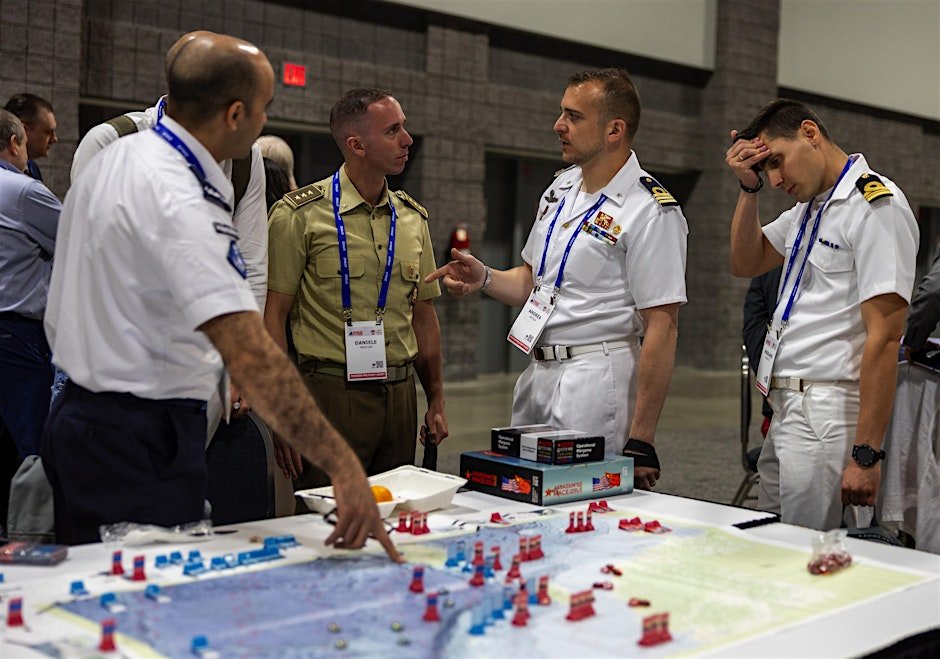
Professional Wargaming in France
From Influence models to a now regular practice of wargaming at the highest level of decision makers, sometimes on par with allies, we discuss the why and how of wargaming and serious gaming has taken a new path in the last 5 to 10 years in France.
Patrick Ruestchmann is deputy director, wargaming, with the French Joint Staff / Joint Center for Concepts, Doctrines and Experiments. He designs and facilitate wargames for High Level Authorities, including NATO and partners. He is graduated from the Institute of Advanced Studies in National Defense, he is also an Operational Reserve Officer. His academic background includes applied researches (AI-Cognitive Science), innovation management and digital transformation.
Previously, Patrick was Head of the Digital Transformation Department for the French Prime Minister’s Digital Directorate and director on a Government Priority Policy. He was president of Serious Games Network - France (non-profit association, organizer of two Connections Fr) and has published both serious and hobby wargames.
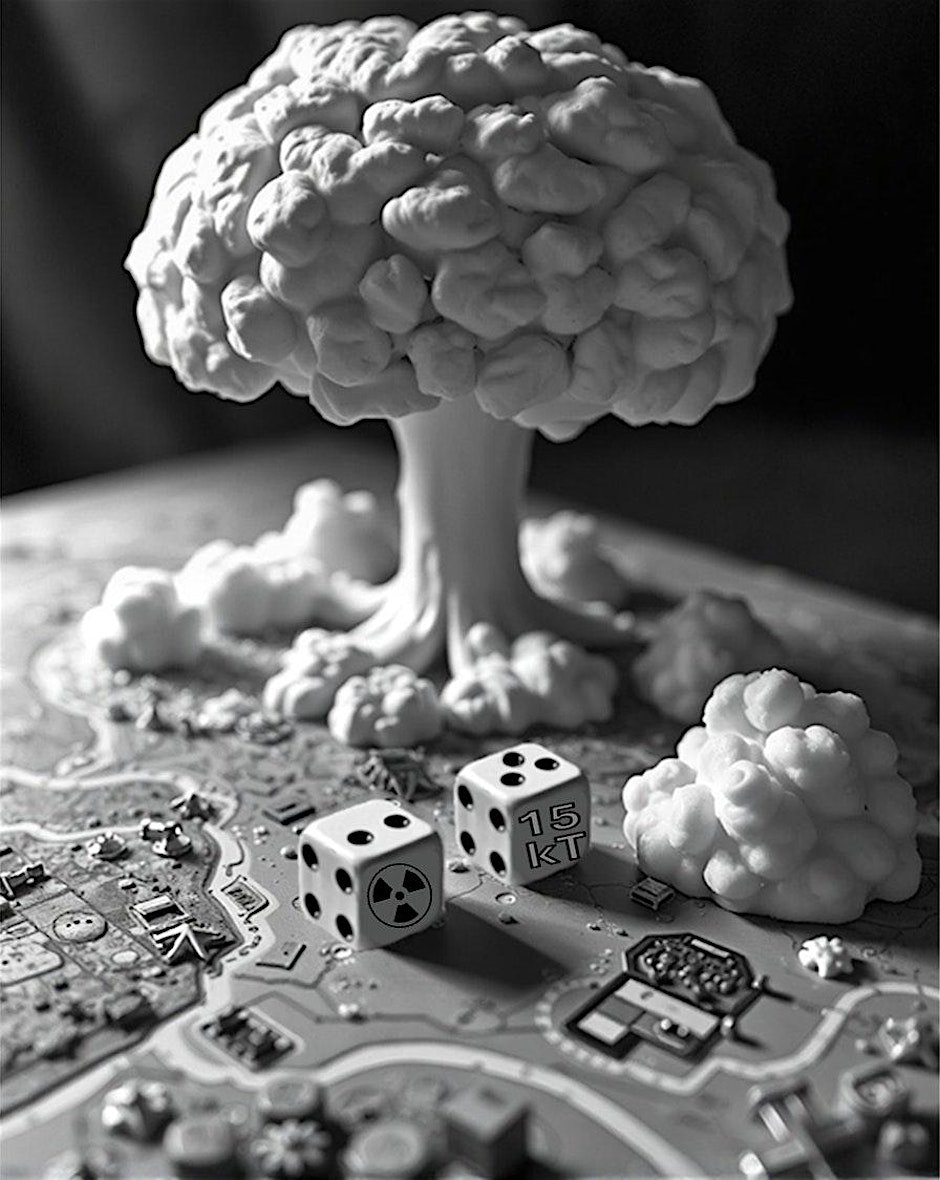
Nuclear Wargaming: It shouldn’t just be Game Over!
With the shift to Great Power Competition with nuclear armed near-peer adversaries, the DoD has been rethinking how to operate on a potentially nuclear battlefield. One enduring challenge to planning for combat involving nuclear weapons, is how to properly wargame adversary nuclear weapon use and the consequences to military units. This webinar will look at some of the challenges of wargaming nuclear weapons effects, as well as provide some potential solutions to make nuclear weapons more playable in future wargames.
COL Jim Gifford, Ph.D. is an assistant professor at the Eisenhower School for National Security and Resource Strategy at the National Defense University. Prior to this assignment he led the Defense Threat Reduction Agency’s Nuclear Wargaming team, supporting Department of Defense, US Government, and Allied wargames with nuclear weapon effects subject matter expertise and adjudication tools. COL Gifford is a Nuclear and Counter-WMD Officer in the US Army with over 23 years in service. He holds a B.S. in chemistry from the United States Military Academy, a M.A. in management and leadership from Webster University, a M.S. in chemical engineering from M.I.T., and a Ph.D. in nuclear engineering from NC State University.
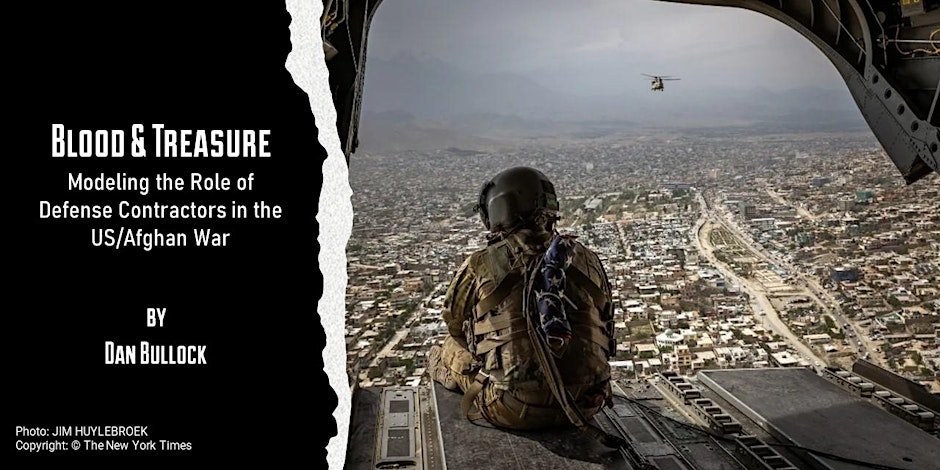
Blood & Treasure: Modeling the Role of Contractors in the US-Afghan War
EVENT LINK: Join Zoom Meeting https://georgetown.zoom.us/j/98307500725
After the US-led invasion of Iraq in March 2003, the Coalition efforts in Afghanistan became increasingly reliant on private military contractors for reconstruction, security, and maintaining stability. How might a game draw from the aftermath of such contracts to model the alignment between mission objectives and firm incentives? How should players’ conclusions inform the role of contractors as a permanent part of force structure for the foreseeable future?
Dan Bullock is a historical game designer of titles such as 1979: Revolution in Iran, No Motherland Without: North Korea in Crisis and Cold War, The Gods Will Have Blood and others. His designs primarily focus on modeling underserved historical topics and irregular warfare.

Transforming Policy into Digital Games: From AI to Plastic Pollution
Policy discussions can be a bit of a closed system for many. Join Dr. Elizabeth Newbury, Director of the Serious Games Initiative, as she talks about how games can be a powerful tool for engaging audiences in topics they may otherwise not find accessible – like key themes in public policy. Digital games from the Serious Games Initiative have reached millions worldwide, and range from topics like the federal budget (Fiscal Ship), environmental policy (the Plastic Pipeline) to emerging technologies (AI and bias). She will walk through the process of developing these games and how her initiative makes research accessible to global audiences.
Dr. Elizabeth M H Newbury is the Director for the Serious Games Initiative for the Wilson Center, leading the Wilson Center's use of games in engaging the public around policy research. As lead of the Serious Games Initiative, she leverages games as a tool for the public communication of science and policy research. Under her leadership, SGI is pursuing how public policy and science can come together in an interactive platform to increase public dialogue and engagement around timely and critical issues of today. Current projects include the Fiscal Ship, a game about the federal budget developed and maintained in collaboration with the Hutchins Center on Fiscal and Monetary Policy with the Brookings Institute. The Wilson Center's budget games have been played by over 3 million people worldwide. Collaborating across the Wilson Center, her works in progress include games pertaining to topics ranging from cybsecurity and plastic pollution. Outside of the Wilson Center, she helps coordinate across federal agencies to help support the ecosystem of games used for social good, through chairing the Federal Games Guild, an informal community of practice with over 100 agency participants united by the purpose to see how they can leverage gaming technologies to meet mission goals.
She holds a B.A. in anthropology from Bryn Mawr College, and a Master and PhD from the Department of Communication at Cornell University, where her research interests revolved around understanding multiple dimensions of gaming audiences and the surrounding culture of those who play video games in the context of esports.
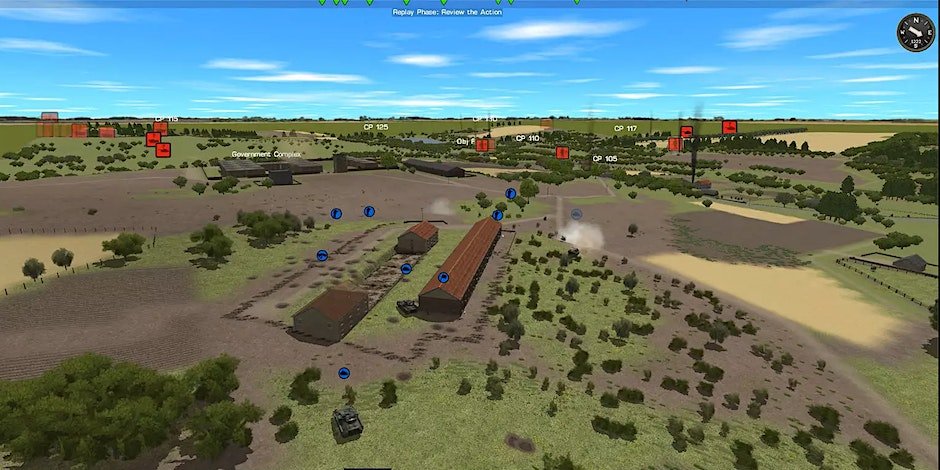
Dungeons and Dragons: Next Generation Interactive TDGs
This webinar is focused on Commercial Game Software and how it can be used to bring analog training methodology into the digital age to improve critical decision-making skills. It will explore various digital wargames from Matrix Games and how they can be leveraged into creating the next generation of Tactical Decision Gaming Methodology to include at the operational level. Proof of concepts will be demonstrated and bringing military journal publications into the 21st century will be discussed.
Kevin Williamson is a Wargame Subject Matter Expert currently working at Marine Corps University in support of Professional Military Education. Kevin is a veteran of the US Armed Forces with experience in Logistics and Gunnery with a strong passion for Civilian-Military joint learning. Kevin spends his free time playing various wargames and spearheading USA Fight Club digital wargame efforts with an emphasis on translating Tactical Decision Games to digital COTS Wargames. Additionally he conducts research on the inclusion of Generative AI into Wargaming that led to his report featured on PAXSIMS. Kevin also holds a position on the Defence Simulation Education & Training International Committee based in the United Kingdom.
Click here to register for this webinar
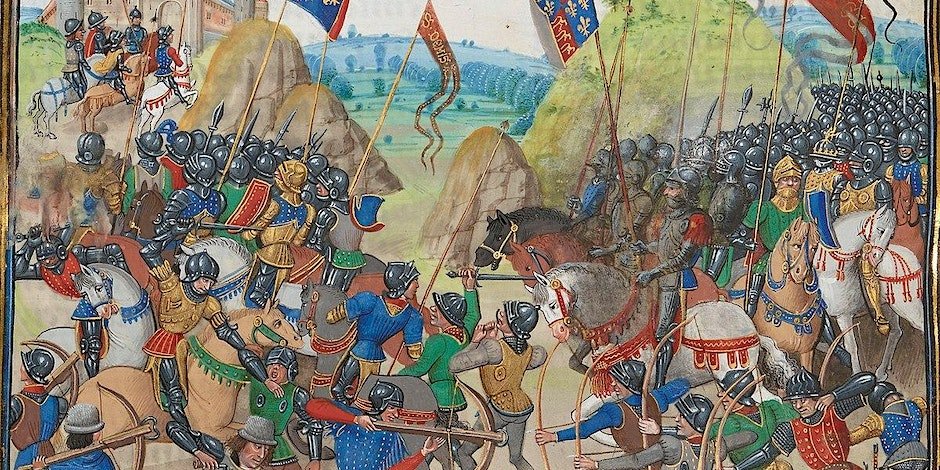
The Challenges and Pitfalls of an 'Authentic' Medieval Wargame
The medieval period is a perennial favourite amongst the tabletop wargamer. Figure ranges in all scales, from the ubiquitous 28mm down to 6mm, are extensive, and new rulesets come out on a regular basis. However, their treatment of medieval warfare is often based on assumptions that are either outmoded or just plain wrong, even if well-intentioned.
The paper will consider the major pitfalls in the design of medieval wargames, and the reasons for them. It will consider such issues as the difficulties of accessing the source material and latest academic research in the popular market, the persistence of myths and misconceptions about medieval war and combat, and the underlying difficulties of adapting rulesets which, at their heart, are designed to replicate eighteenth- and nineteenth-century European warfare for battles that occurred in a wholly different cultural milieu.
It will consider the vexed question of how one makes a form of battle that often lacked tactical choice and command decisions into an enjoyable and fulfilling game for players, suggesting that the answer lies in focusing on the cultural drives of the combatants, such as the chivalric desire to be seen to be a prud'omme, and rewarding behaviour that is counterintuitive to winning a game, but was wholly in keeping with the ethos of the medieval military mind.
Dr. Robert Jones is a medieval historian specializing in the cultural history of medieval warfare and combat. The author of 'Bloodied Banners: Martial Display on the Medieval Battlefield' and 'A Cultural History of the Medieval Sword: Power, Piety and Play', he is a Fellow of the Royal Historical Society, and a Visiting Scholar in History at Franklin and Marshall College, Pennsylvania. He works for Advanced Studies in England, a study abroad programme for US undergraduates, based in Bath.
He has been a tabletop wargamer for over thirty years, and has combined his historical.knowledge with his hobby to produce a mass battle game 'Blood and Hirse Droppings' and a medieval skirmish game 'Écorcheurs' (the former freely available online and latter being published this coming summer).
Click here to register for this webinar
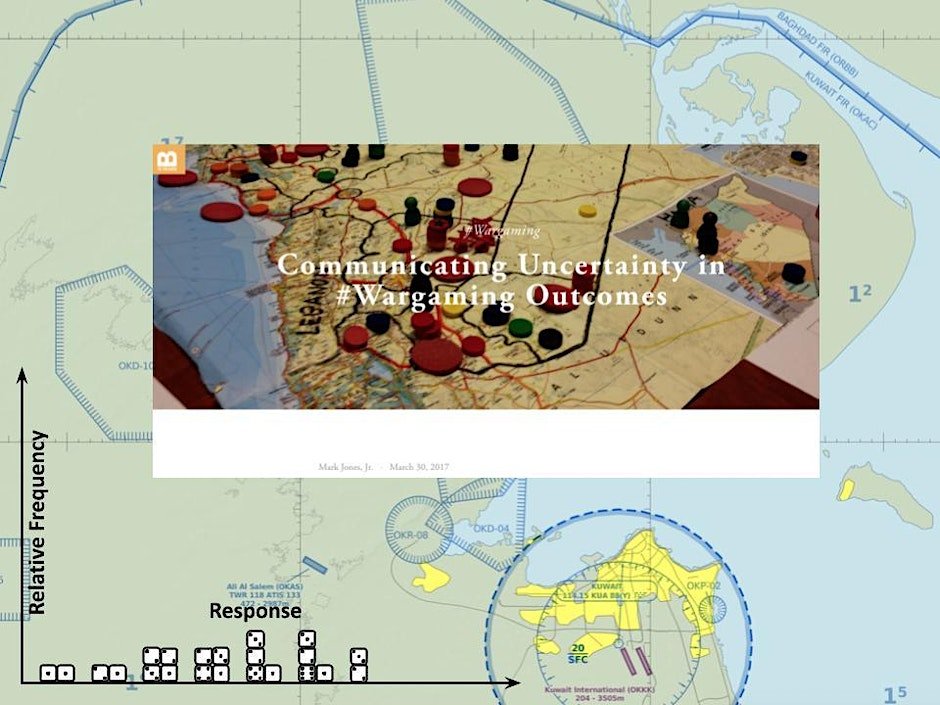
Communicating Uncertainty in Wargame Outcomes
Former Deputy Secretary of Defense Bob Work and Vice Chairman of the Joint Chiefs of Staff Gen Paul Selva invested heavily in the revitalization of wargaming. They wanted to use wargames to adapt technology for the nation’s next wars. Understanding the outcome of today’s wargames is an essential step in the process of adapting them for future wars, and unfortunately understanding the outcome of wargames caused us to stumble in the past. History suggests that Pearl Harbor wargames yielded lessons we failed to learn, and Desert Storm wargames predicted casualty numbers that were 20 times too high. These examples frame the critical question, one asked by wargaming practitioners and scholars: how do we express confidence in wargame outcomes? To answer this question, a framework of three rules for communicating uncertainty in wargaming outcomes are proposed.
Mark Jones Jr. is a husband, grandfather, experimental test pilot, and Air Force Colonel. Professionally, he has been part of the wargaming community since 2016, when he served as a wargamer at the Pentagon. Currently, he leads wargaming initiatives for Air Force Special Operations Command’s Operations Directorate (A3) as part of his special operations air power portfolio. His first wargame design is a confluence of tic-tac-toe and Civil War era intelligence gathering, and he is passionate about the full spectrum of wargames.
Click here to register for this webinar
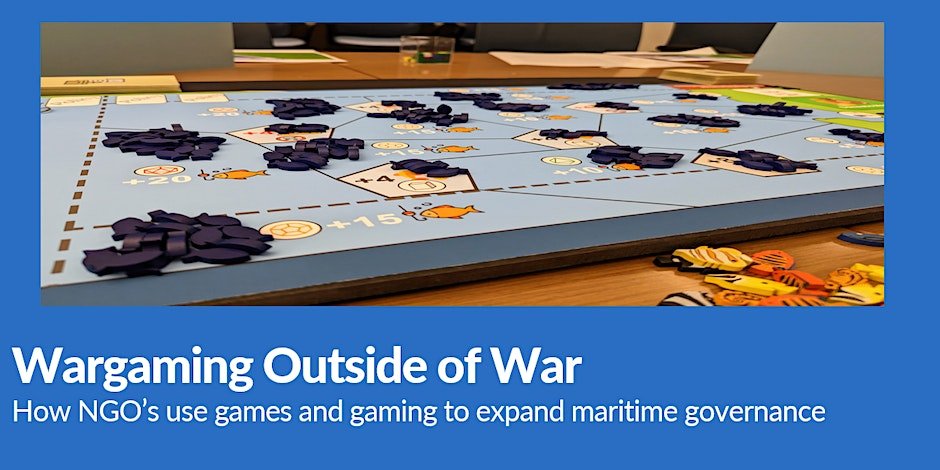
Wargaming outside of War: How NGO’s use games and gaming to expand maritime
In recent years wargaming has expanded its user base, moving from strictly the defense community to a wider audience, including philanthropies and other non-governmental organizations. Gina Fiore from The Pew Charitable Trusts will describe her experience working on the development and deployment of a first of its kind wargame on illegal, unreported and unregulated (IUU) fishing and how her and her colleagues use it to expand their outreach and advocacy work.
Gina Fiore works for The Pew Charitable Trusts as an Officer in their International Fisheries Program. In her role at Pew she manages work related to the convergence of illegal fishing, criminal activity and maritime security. She also acts as a liaison between Pew and the military and national security communities as well as advocates for increased information sharing of maritime security data between both internal agencies and regional partners. Prior to Pew, Ms. Fiore worked on illegal fishing for the United States Navy’s Executive Agent for Maritime Domain Awareness (OPNAV N2/N6E3) and spent five years in the US Department of Defense. She holds dual MAs from the New School for Social Research as well as dual BAs from the State University of New York at Stony Brook.
Click here to register for the webinar
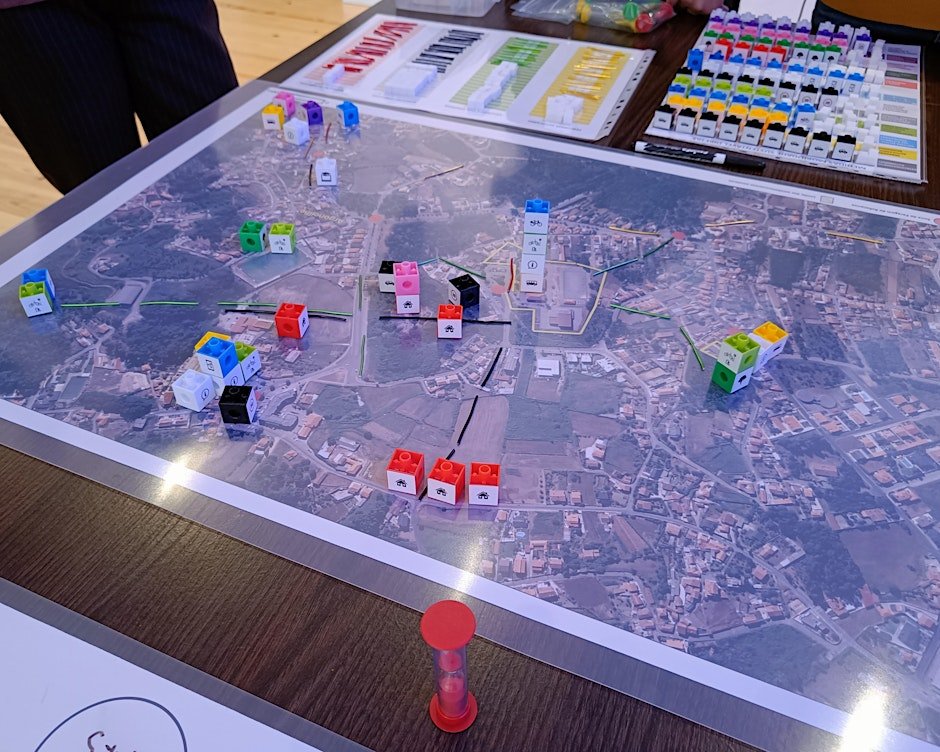
Using Analogue Serious Games To Plan Cities Collaboratively
Cities are probably the most complex human creations due to their historical background, extension and overlaying integrated and interconnected activities. Some of these activities are conflicting and competing for resources, space, energy, and other needs. People are the ultimate users. In democratic societies, they should have a word saying about the city's management and strategic development. Serious games can be planning support tools to implement collaborative planning processes where citizens and stakeholders participate in their city's future development. Several practical case studies of analogue serious games for urban planning purposes will be presented in this open class by Micael Sousa.
Micael Sousa graduated with degrees in Civil Engineering and History. Master in Energy and Environment and Heritage Studies. PhD in Spatial Planning (University of Coimbra/Porto). Postdoctoral research at Spatial Dynamics Lab, University College Dublin, and Game Designer at CAPTRS. Member of ISAGA and SPCV. Game designer/Serious games: www.msseriousgames.com. Lecturer and instructor in several institutions in Portugal, including Lusófona University, Polytechnic of Leiria, and European University.
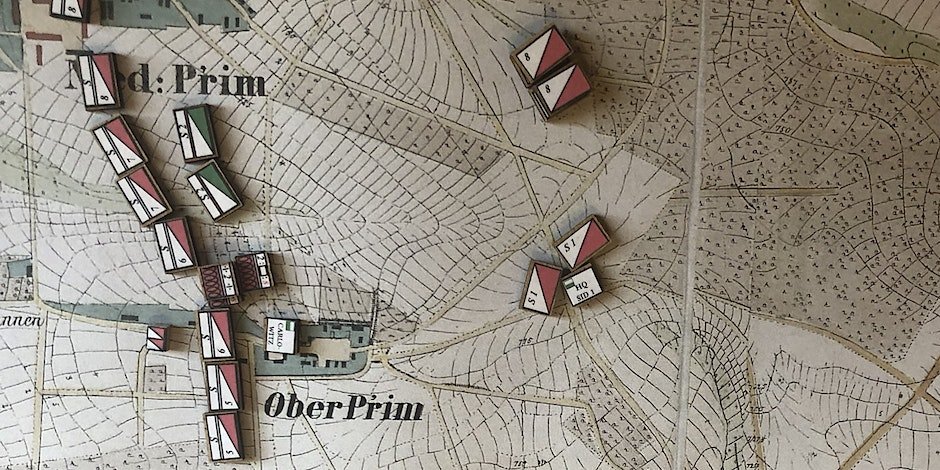
Kriegsspiel - Past and Present
The Prussian Kriegsspiel, probably the world's first wargame in official use for educating military decision makers, turns 200 in 2024. Its developmental history which had what was originally a tactical simulator designed for recreating a army manoeuvres on a map turn into a variety of specialized tools covering a wide arrange of subjects from battalion-level army tactics to operational-level naval warplans and train logistics, and all within about half a century. Due to Prussian successes in the wars of 1866 and 1870/71, the Prussian Kriegsspiel was adopted throughout the industrialized world, in which by the time of the outbreak of WW1 the use of wargaming for educating decision makers was quite ubiquitous. Of course, this lies all well in the past now, yet the Prussian Kriegsspiel continues to have relevance to the training of military decision makers even 200 years after its invention. While teaching officers how to properly employ squadrons of cavalry is no longer high up on the agenda when it comes to educating military decision makers, exposing them to the difficulties friction and fog of war can cause still is, and the Prussian Kriegspiel is particularly well-suited to make participants confront these difficulties.
Jorit Wintjes currently works as a professor for Ancient History in the department of history at Julius-Maximilians-Universität in Würzburg, Germany. He also teaches in the Digital Humanities program at Julius-Maximilians-Universität and works as a guest lecturer both at the German armed forces staff academy (FüAkBw) and the Helmut-Schmidt-Universität in Hamburg. A co-founder of the Conflict Simulation Group, he has reconstructed and developed Kriegsspiel-type wargames for training decision-making processes which have been run at various German army institutions like the Warfighting Simulation Centre (GefSimZH) or the Military Police and Headquarters Service School (SFJg/StDstBw). His research interests include Roman military – and specifically naval – history, 19th c. military history, the history of wargaming and the role of women in warfare; he is a long-time member of the British Commission for Military History (BCMH).
Click here to register for the webinar

(War)game theory: wargaming and modeling in social sciences
Social scientists are known to use various mathematical modelling techniques whether game theory, equilibrium, agent-based, big data-driven or other types of models. They also attract weighty criticism due to oversimplification, assumptions used and the complexity of social reality among other reasons. This webinar will focus on the relationship between wargaming and other modelling approaches in social sciences, especially game theory. What are the key complementarities? We will locate wargaming in this broader map of social science models to see how it can contribute to better learning and better understanding of social reality.
Pijus Krūminas is an Associate Professor and programme director at ISM University of Management and Economics in Vilnius, Lithuania. There he runs classes on wargaming, game theory, and comparative politics, supervises theses based on games as a data collection method, and simply educates about serious games. Pijus has also been running wargame-based seminars in the field of security and military education.
Click here to register for the webinar
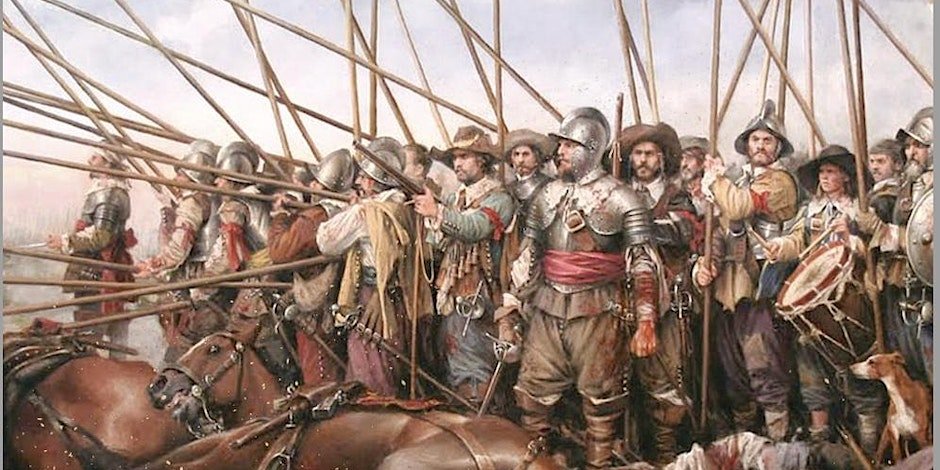
The Political Struggle in Europe during the Thirty Years' War (1618-1648)
The presentation has the aim to reflect with the wargame 'The Collapse' as an example, that the religious reason used as an excuse to start the conflict, turned into a political struggle that totally changed the geopolitical and balance of powers in Europe until 1648 with the Treaty of Westphalia. Thus, the need to reflect this political struggle or even turmoil within nations in Europe, should include the political differences between the two "great political blocks" as was the case of the catholics against the protestants in three dimensions that need to be balanced for a most effective game as regions control (political dimension), the need to use military units to defeat the enemy and their victory options (military dimension), and also the need to gain foreign support both financial and military from 9 nations included in the game (diplomatic dimension). And finally, the dilemma for factions to decide if ravaging a region when taking control of a city within armies in that period needed to feed with the resources from the regions they moved across.
Daniel Hernández lives in Sabadell, which is close to Barcelona in Spain. He has lived 7 years in Norway (Stavanger and Ås which is a city near to Oslo), where he studied a Master’s in International Hotel and Tourism Leadership and another in International Relations, besides working with several student organizations and cooperating for international students academic and cultural inclusion in the country. This work let him be in contact with the Norwegian government, universities and more than 30 embassies. Furthermore his higher education dissertations were about the European Union Tourism Policies and Afghanistan stabilization.
Click here to register for the webinar
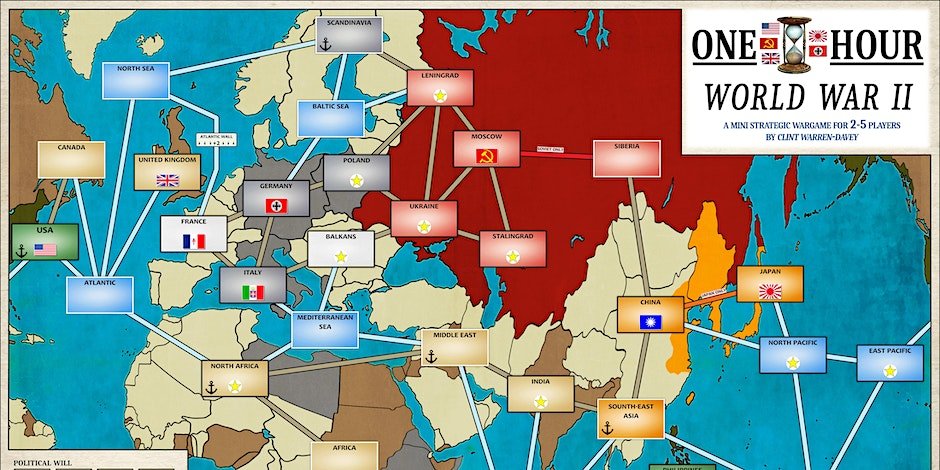
Simplifying Large Scale Conflicts
Clint has been using wargames to teach high school students about military history for many years. This requires cramming in large amounts of detail into simple games that can be played in an hour or less. This experience in the classroom has allowed him to make games that capture the essence of a conflict with a minimum of rules, components or downtime. It has also led to his latest design from Worthington Games - One Hour WW2 - an attempt to portray all of the Second World War in a game lasting one hour. In this presentation, Clint will break down his design process and share his experiences in simplifying large scale conflicts into compact and accessible games for both fun and educational use.
Clint Warren-Davey is a History teacher and wargame designer/developer from Australia. His area of specialty is strategic and operational level World War Two games, but he also deals with World War One and 21st century warfare. Clint frequently uses wargames in the classroom to teach about military history and to build student engagement. He has also worked for the Australian Defence College in Canberra in the role of White Cell adjudication for educational wargames including Exercise Siege Perilous (2023) and Exercise Haltstate (2023).
Click here to register for the webinar
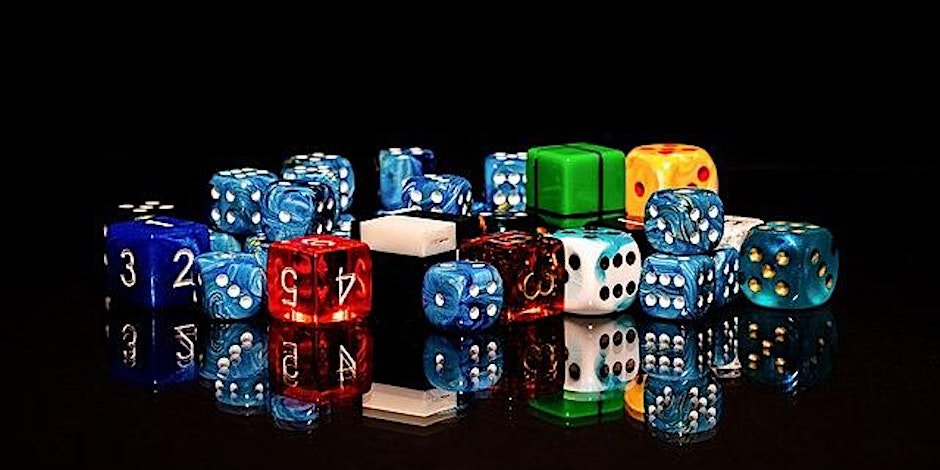
The Hidden Power of Games: Game Based Models Within the Corporate Environment
Organized by Brunswick teacher Jared Fishman, this seminar will focus on HMGS Next Gen, Inc’s work using a gamified approach to leadership and corporate training. Throughout the seminar, Jared Fishman will share the methods he’s developed to train people to think more decisively, reflectively, and build their skills by using games as a pedagogical tool. More specifically, Jared will share testimonials from employees from the Department of Cultural and Historic Affairs in Passaic County, NJ, who have been working with HMGS Next Gen, Inc since September 2023. Over the course of five months, Jared has worked alongside and consulted with Director of Operations Kelly Ruffel in an effort to build a more productive and professional work environment. Ultimately, while games are fun, they also have a power unto themselves to draw out the best in people, and often unlock hidden skills. Jared will outline all the benefits of a game based learning approach for use in the professional world, developed over his nearly 20 year career.
Jared Fishman is the co-founder and co-director of HMGS Next Gen, Inc, and host of the “20 Sided Gamified Podcast”. He is a familiar face in the world of education and game design thinking. Currently, Jared is a teacher at Brunswick School, in Greenwich, CT, where he teaches Modern World History and a history elective entitled, “History of Warfare”. Moreover, he serves as the advisor to Brunswick’s Model UN team, which regularly takes part in conferences at Princeton and Georgetown. Previously, Jared worked at the Hackley School, in Tarrytown, NY. He served as a grade level dean, authored elements of the history curriculum, and was the architect of Hackley’s popular “Strategy Game Club.” Jared has been bestowed numerous honors in his career, including the Mary Lambos Award for Teaching in 2014 and the Davidson Chair in History, a position he held from 2016-2020. Jared's classroom experience has set the foundation for his belief that games support critical thinking along many different avenues, from the classroom to the office. He has organized and facilitated several conferences on the subject, entitled “Role Playing, Games, and Simulations in the Humanities Classroom” and has presented at various HMGS, NASAGA, and other game related events. In each presentation, Jared has demonstrated the real world benefits that game related thinking can provide. In 2019, he and his teaching partner Michael Canterino won the NASAGA “Rising Star” award for a role play simulation entitled “Drawing a Line in the Sand: Exploring Leadership Through the Lens of Popilius.”
Click here to register for the webinar
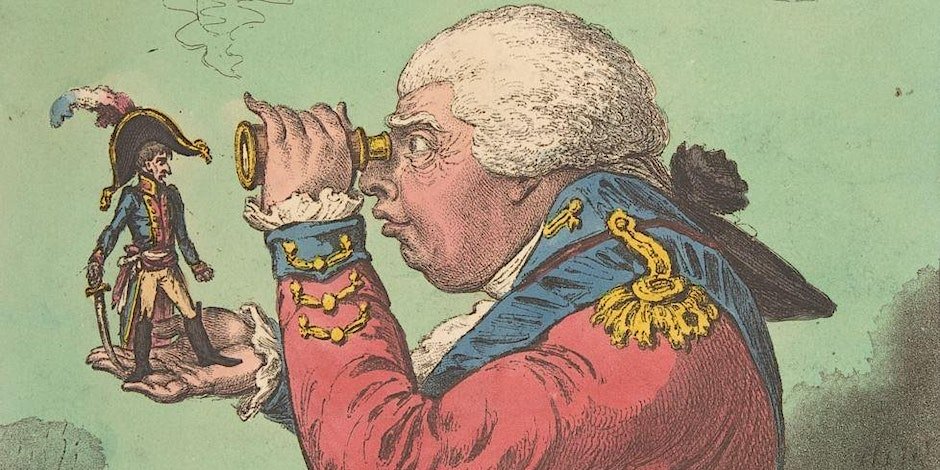
Perspective and its Consequences in Historical Game Design
When Napoleon looked over the frozen fields around the Pratzen heights, what did he see? Did he think of his army primarily in terms of battalions or regiments or brigades or divisions? How did he imagine the battlefield or the limits of his own command? Historical games often ask us to embody specific decision makers in the past, but to what degree should we let their subjectivity guide the models we use to design our games. In this talk, Cole Wehrle will consider how historical games have dealt with questions of perspective in the past and consider what designers stand to gain from wrestling with these subjectivities.
Cole Wehrle is an ex-academic who decided to abandon the lucrative field of Victorian studies in favor of game publishing. He works as the creative director at Leder Games in Saint Paul and is best known for the award-winning game Root, which uses a children's book aesthetic to explore the politics of police states and insurgency. Root and its expansions have sold hundreds of thousands of copies and have been translated into nearly twenty languages. He is also the cofounder of Wehrlegig Games with his brother Drew Wehrle, which handles the publication of his historical games which cover subjects related to his academic work including state formation in 19th century Afghanistan (Pax Pamir) and the rise and collapse of the British East India Company (John Company).
Click here to register for the webinar
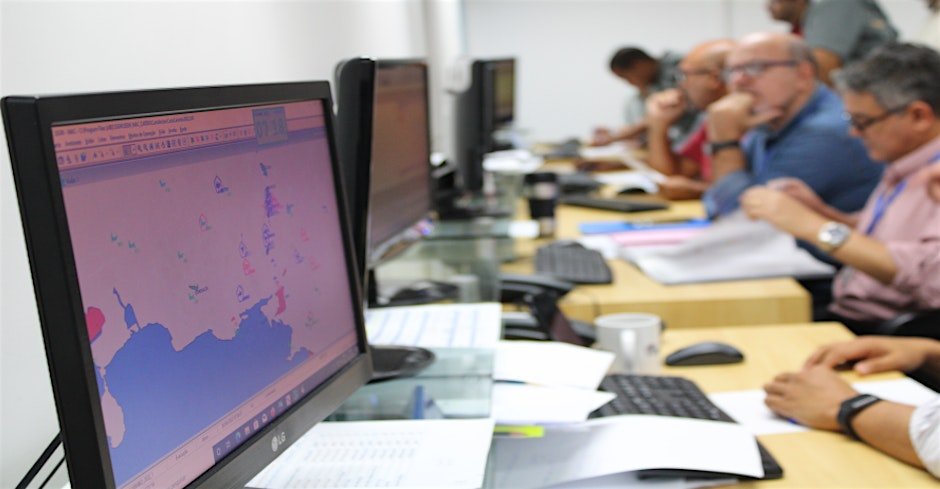
Wargaming in the Brazilian Navy
EVENT LINK: Join Zoom Meeting https://georgetown.zoom.us/j/93992007310
Navy Captain (Ret) Xavier will discuss how the Brazilian Navy and the Brazilian Navy War College leverages wargaming. He will outline the origins of their wargaming efforts, the focus of their wargames, and some of their clients in Brazil. He will also discuss their Wargaming Simulation System, international wargames, and their future plans.
Alexandre Tito dos Santos Xavier is a Navy Captain (Ret) as well an Instructor and a Research Specialist in Wargaming at the Brazilian Navy War College. He wrote some articles about wargames and he is the author of the book “Unraveling the Wargames: an introduction to the subject” that is the only book in portuguese language in Brazil about professional wargames. Prior to this position he spent 36 years in active duty in Brazilian Navy with commands in navy ship and naval base. He had a two years tour in US Fleet Forces Command and one year tour in UN Interim Force in Lebanon.
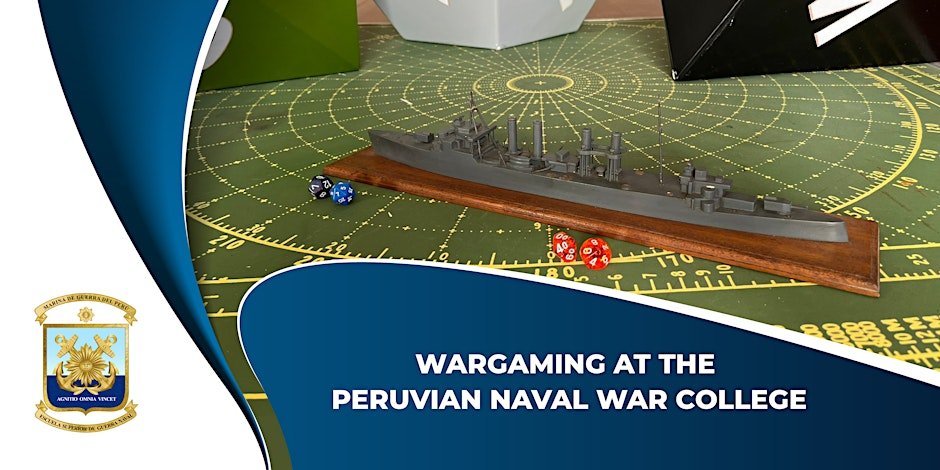
Wargaming at the Peruvian Naval War College
EVENT LINK: Join Zoom Meeting https://georgetown.zoom.us/j/92607981640
Rear Admiral Luis del Carpio will discuss the history of Wargaming at the Peruvian Naval War College and his experience designing wargames for military and defense education.
The introduction of wargaming techniques in military education has a long tradition around the world improving the way to learn the planning process and the development of tactics, doctrine and war plans. The use of games also provides the possibility to learn new concepts and how to confront hypothetical situations. Rear Admiral del Carpio will discuss of Wargaming at the Peruvian Naval War College and describe his experience using and developing wargames and games to teach military and defense concepts.
Rear Admiral Luis del Carpio is the Director of the Peruvian Naval War College. He is graduated from the Peruvian Naval Academy Class 1992, and he attended the submarine officers’ course in 1994 / 1995. He attended the Engineering Submarine Officer’s Course at German Navy in 2000. During his career he served at the Submarine Force in different units, he was Executive Officer and Commanding Officer of the submarine BAP “Angamos” and participate in two deployments to the United States supporting the Diesel Electric Submarine Initiative Program. He is also graduated from the Naval Command College Class 2015 at the U.S. Naval War College and holds a Master degree of International Relations at the Salve Regina University, Newport, Rhode Island.

Wargaming Urban Conflict: A PhD in Progress
The world is becoming increasing urbanised, and the “urban triad” of complex man-made terrain, a human population and supporting infrastructure offers a host of evolving challenges to any military contemplating operations in the urban environment. This session will present an overview of the work so far on my PhD in wargaming urban conflict including: a (very) brief history of urban conflict; a consideration of some of the key characteristics of modern urban warfare (and how those are challenged or reinforced by events in Gaza and the Ukraine); an initial analysis of existing urban wargames and an outline of the urban wargames that I have been working on so far. The presentation will end by examining the issues of civilians, civilian infrastructure and civilian livelihoods in urban conflict and urban wargames.
David Burden has been a wargamer and creator of wargames for around 50 years – although ironically not for the 10 years he spent in the British Army. David founded Daden Limited in 2004, working mainly in virtual reality and conversational AI. Whilst working with the UK MOD to automatically generate social media to support urban wargames David developed a wider interest in the issues of urban conflict and how they could best be wargamed. David started his part-time PhD on wargaming urban conflict at Bath Spa University under Dr John Curry in early 2022, and is currently researching the unique features of urban warfare and how it has been wargamed in the past. Alongside book research and interviews David is also designing new wargames looking at different aspects of the urban challenge. David is an ex-Royal Signals officer, a Chartered European Engineer, a TEDx presenter, and is also series co-editor for Taylor & Francis on their Metaverse Series of books.
Click here to register for the webinar

Integrating Scientific Experiments with Wargaming Mechanics
In this workshop, the innovative integration of formal scientific experiments with experimental game mechanics will be explored, focusing particularly on wargames. The discussion will revolve around how traditional wargaming elements can be effectively utilized in scientific settings to enhance experimental outcomes. We will delve into the additional benefits of incorporating game mechanics into formal experiments, what modifications are required in traditional gaming styles to facilitate scientific inquiry, and the potential of this interdisciplinary approach to reshape experimental research.
L. Berke CAPLI
Levent Berke Çaplı completed his undergraduate education in the field of "Economics and Political Science" at the University of Essex in England. He completed the SAVBEN Technology Management Master's Program at the Turkish Military Academy and in 2019, he obtained his master's degree in Technology Policies from METU with his thesis titled "Behavioral Economics and System Engineering-Based Serious Game Development Methodology." Currently, he is pursuing his doctoral studies in the field of Social Sciences at the University of Edinburgh. In 2016, Çaplı became the Founding Chairman of the NATO Cyber Defense and Gamification Research Committee (SAS-129) making him the youngest-ever chairman of NATO. He is currently leading the SAS-172 Multi-Domain Warfare Game Research Task Group. In 2023, he received the NATO Early Career Award for his contributions to the SAS-129 Research Group.
E. Ada SAYIN
Ada is a law graduate from the University of Strasbourg, France with an avid interest in defence. She has coordinated the Women in Command Project, funded by US Embassy Ankara, NATO Public Diplomacy Division and supported by NATO Chief Scientist’s Office with KizBasina (Just-a-Girl) NGO. The Hybrid Threat Rising game was created under Ada’s lead which became Turkey's first game dealing with hybrid threats, the first game to be developed to train women leaders and the first game to be designed and led by a woman. The game also obtained the International Serious Play Awards’ Golden Medal and won the MS&T Awards of 2022. Following the final design, she led the design for the Humanity in Crisis Module. She also won the Women in Defence UK - Women in STEM award in 2022. Ada is also acting as a Design Team Lead for the Global Internet Forum to Counter Terrorism (GIFCT) Crisis Working Group to design a TableTop Exercise working with world’s leading social media tech companies and worked directly with representatives from Meta, YouTube, Tech Against Terrorism, FBI and many more since 2022. She then became the co-lead of Fight Club International’s Türkiye Chapter (Fight Club Türkiye) and a member researcher to the NATO STO’s SAS-172 Research Task Group on Multi-Domain Operations Wargame. Lastly, she is to become the youngest ever Task Group chair with the SAS-HFM-ET-FH on Inclusion of Generation Z+ to Defence Organizations.
Click here to register for the webinar
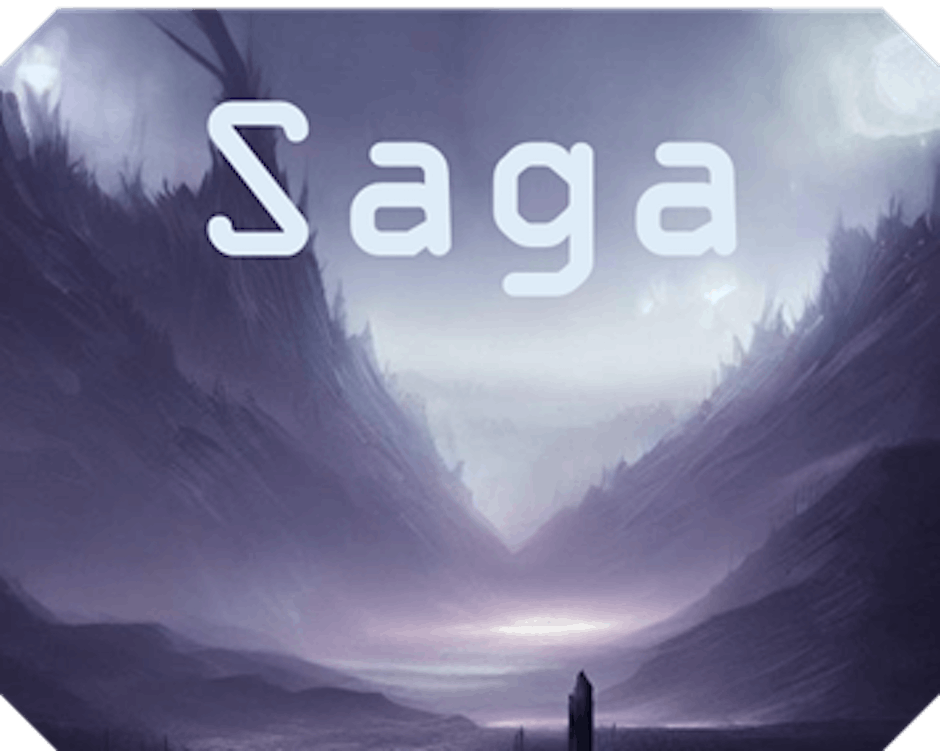
Saga: A Sub-threshold Conflict Wargaming System
Saga is a wargaming system based on the need to fight for information within opaque and complex information environments. Intelligence will come in many shades of grey; it might be complete, it might be partial, it might be misinformation or disinformation. Games are multi-sided with teams being formed of players from any type of role needed for the scenario (e.g. military, influence, cyber, economic…). Throughout the game they must combine their arrays of skills to pierce the fog of conflict and uncover their adversaries’ actions and intentions. Saga uses a number of novel design elements to combine the flexibility of seminar and matrix wargaming with the benefits of analytical wargaming. Thus, it has minimal set-up time and intuitive adjudication methods, but it captures all game data and supports a myriad of post-game analysis methods.
Peter Williams is a Research Specialist in Wargaming at the Defence Science and Technology Group (DSTG) in Australia. Prior to this position, he spent over 15 years as a Land Operations Analyst; working on collecting data from wargames and analysing the outcomes in order to measure the impact of emerging capabilities and concepts for Defence. Thus, he developed an unnatural tendency to make every wargame an Analytical Wargame. Over the past few years, Peter has focused his designs on sub-threshold conflict; exploring ways to model the grey zone and levers of conflict which lie outside of open warfare. He has developed three serious games on the topic so far and is desperately hoping to make a good one sometime soon. Outside of professional wargaming, Peter likes Santorini, Abyss, Diplomacy, Mordheim and Thunderstone Quest. (And a billion other games.)
Click here to register for the webinar
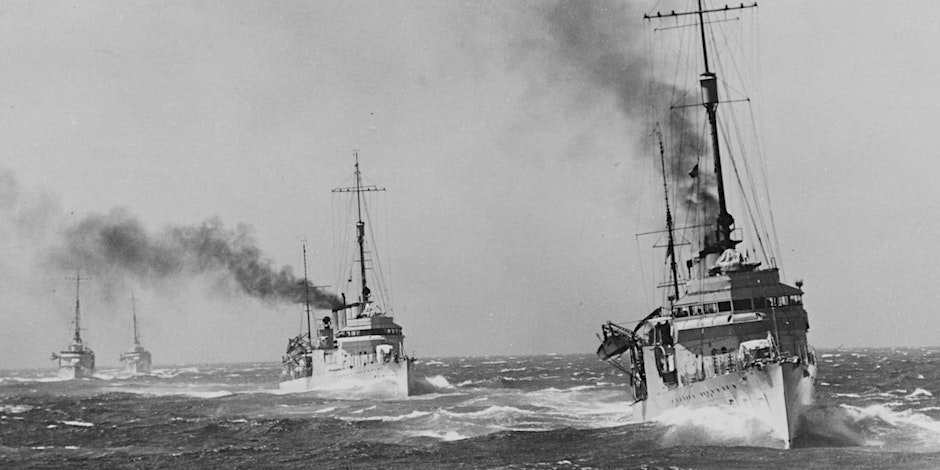
Wargaming's Influence on U.S. Navy Tactical Doctrine, 1906-1941
Wargaming was instrumental in the development of the U.S. Navy's tactical doctrine. Doctrine was a new concept in the Navy of the early twentieth century. As ship captains and formation commanders explored how best to foster collaborative action beyond the range of visual signaling, they used wargaming to identify what was possible. By reinforcing these lessons with exercises at sea to determine what was tactically feasible, they developed more sophisticated approaches to handling ships, formations, and fleets. This synergistic relationship between fleet exercises and wargaming began before World War I. After that conflict ended, the Navy's approach became increasingly systematic, prompting the creation of a learning system that aided the introduction of new technologies and more sophisticated tactics. By the eve of World War II, the Navy was well-positioned, not only to fight but to learn rapidly from combat experience, because of its wargaming experience.
Trent Hone is a Vice President of Technology and Product Innovation with ICF International in Reston, VA. His Learning War: The Evolution of Fighting Doctrine in the U.S. Navy, 1898–1945 explained how the U.S. Navy harnessed learning mechanisms to accelerate victory in World War II. Hone’s article, “U.S. Navy Surface Battle Doctrine and Victory in the Pacific” was awarded the U.S. Naval War College’s Edward S. Miller Prize and the Naval History and Heritage Command’s Ernest M. Eller Prize. Hone’s latest book, Mastering the Art of Command: Admiral Chester W. Nimitz and Victory in the Pacific War, is a detailed examination of Admiral Nimitz's leadership during World War II and describes how Nimitz used his talents to win crucial victories against the forces of Imperial Japan, seize the initiative, and execute an offensive campaign that created the conditions for victory in the Pacific.
Click here to register for the webinar

Oh, The Humanity: Generative AI Imagery in Game Design
Generative AI imagery is a tool that is increasingly available and used by a growing audience, including game designers. At the same time, the proliferation of generative AI imagery has met with very vocal and negative pushback from parts of the game design community. In this presentation, Ian Brown will discuss how he used AI imagery in his "#Maneuver_Warfare" card game; how its use specifically supports his game design philosophy; and considerations for why the issues on generative AI imagery are not so black-and-white as critics would suggest.
Ian Brown is a retired Marine helicopter pilot, and currently works as a wargame analyst for a private company. He has run podcasts and written extensively (in both fiction and non-fiction formats) on professional military education, military history, future warfare, and yes, wargaming. The views he will present are his own and do not represent the views of any other company or entity with which he may be affiliated.
Click here to register for the webinar
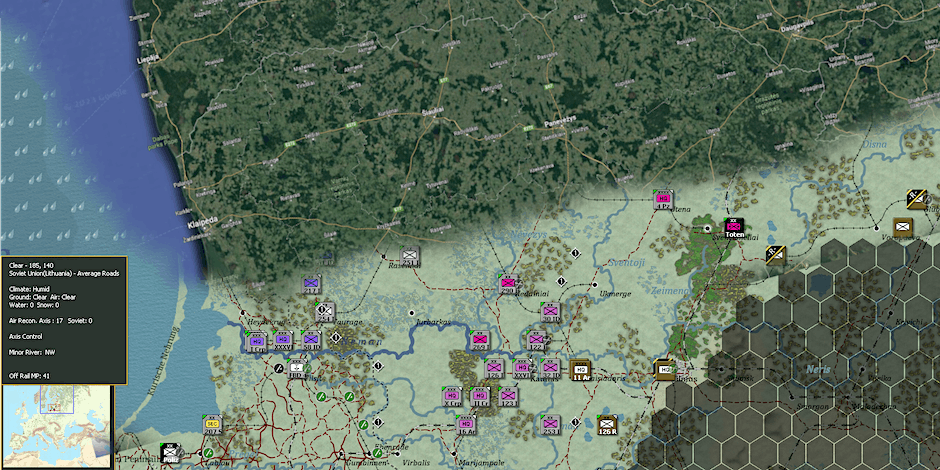
The Tyranny of Binaries: how wargame rules build narratives
War is an infinitely complex endeavor waged over vast spaces by entities composed of hundreds of thousands of human beings. Wargames need to be teachable in an hour and managed by two humans. This requires compression. But what does that compression do and how does it shape our understanding? This talk will use examples from history to show how wargame rules impact how we view conflicts and build narratives that we may not be able to consciously see. From terrain modifiers to information flows, it will challenge assumptions and offer solutions to help better capture the complexity of war.
Sasho Todorov is a D.C. based attorney with a strong interest in military studies. He engages in both casualty and logistics data projects as well as conflict mapping. His work can be found online, as well as in the upcoming book: The Battle for Kyiv, by Christopher Lawrence.

Accelerating Organizational Change Through Games
In this webinar, we explore how international corporations use game-based approaches to support their strategic transformations. From using game-based war room sessions to test strategic options to the use of leadership simulations to sharpen critical leadership competencies. We look at inspiration from Prussian thinkers like Carl von Clausewitz and von Moltke and the tradition of ‘Kriegsspiel’, and we dive into resent cases from industry leading corporations.
Ask Agger. He holds a Master's degree in Political Science from the University of Copenhagen and have more than 20 years of experience as a change management consultant and executive advisor. He is an expert in storytelling, strategy execution, leadership development and the design of game-based tools for training and engagement. Ask heads the Copenhagen-based change agency Workz (www.workzchange.com) and his favorite wargames include Flat Top, Twilight Struggle, Empire in Arms, Diplomacy and Twilight Imperium.
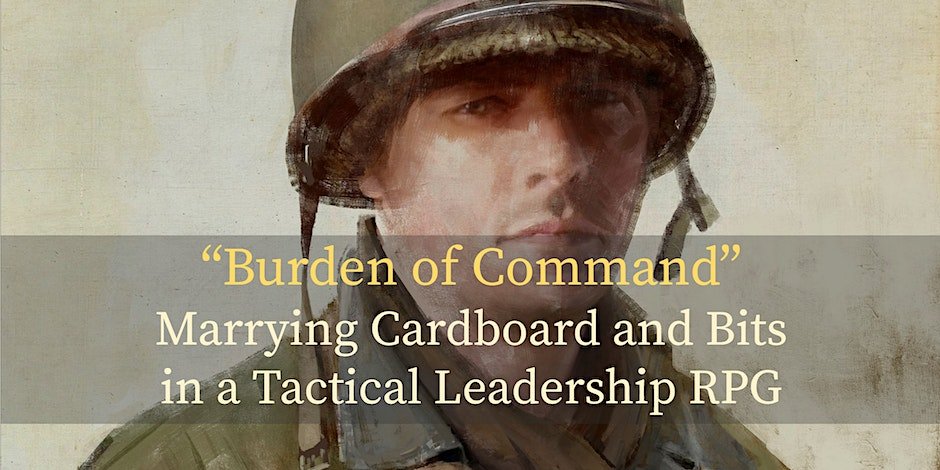
Cardboard Meets Bits, Designing a WWII Tactical Leadership cRPG
Project lead Dr Luke Hughes talks about design challenges in creating “Burden of Command” which Forbes characterizes as "...aiming to be an Interactive Band of Brothers." Burden strives to give players a tactically credible, emotionally authentic, and historically respectful experience as they Captain a US infantry company from Morocco to Hitler’s Eagle Nest. Burden draws heavily on the deep tactical boardgame tradition that started with Squad Leader but also integrates modern narrative and digital gameplay techniques. Join Luke for a discussion of how that marriage is working out!
Dr Luke Hughes received a PhD in AI (Yale) and an MA in Neurophysiology and Psychology (Oxford). Luke was a research lab head for Accenture and has considerable public speaking experience (three times on ABC Nightly News and many public and client talks). Luke’s Dad was a WWII vet and Pulitzer Prize finalist historian. Luke marries his consequent deeppersonal interest in history, technological skills, and psychological training to look at battlefield psychology and leadership through his current game project “Burden of Command.”
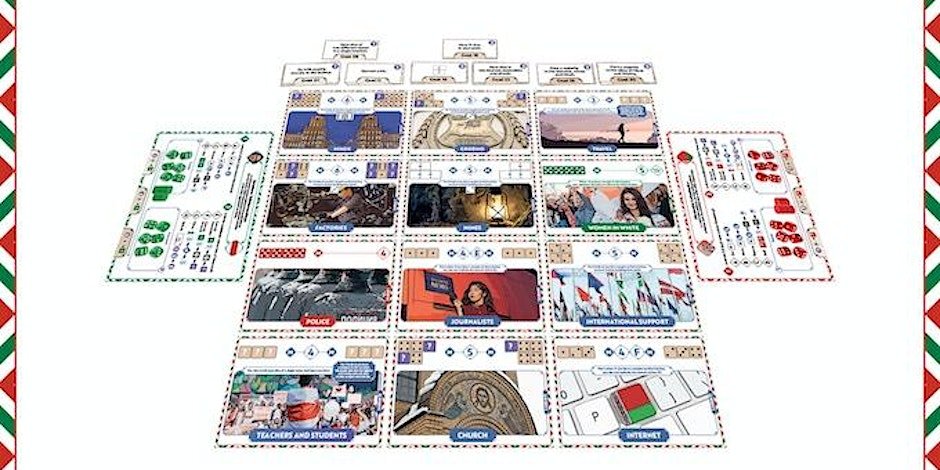
The curse of the perfect prototype: how to move from idea to the table?
Natalia Wojtowicz will present about the design choices made in the latest game about protests in Belarus, I'm Not Afraid. She will discuss the selection of elements, balancing of mechanisms, difficulty of making things simple and depiction of the dictatorship. In this talk, you will hear about choosing the topic, and how to bring it from an idea to the table.
Natalia Wojtowicz is a lecturer in wargaming and cybersecurity at the Hague University. She is teaching wargame design in the Safety and Security Management Programme, where she draws from her books on Wargaming Experiences. Previously, she worked for NATO, where she developed new formats responding to current challenges. Since then, she has been working on innovation in wargaming, contributing to many volumes, including Forging Wargamers. In 2023, I'm Not Afraid, a game about Belarus, was funded on Kickstarter. You can follow her on twitter @Wojtowicz_N .